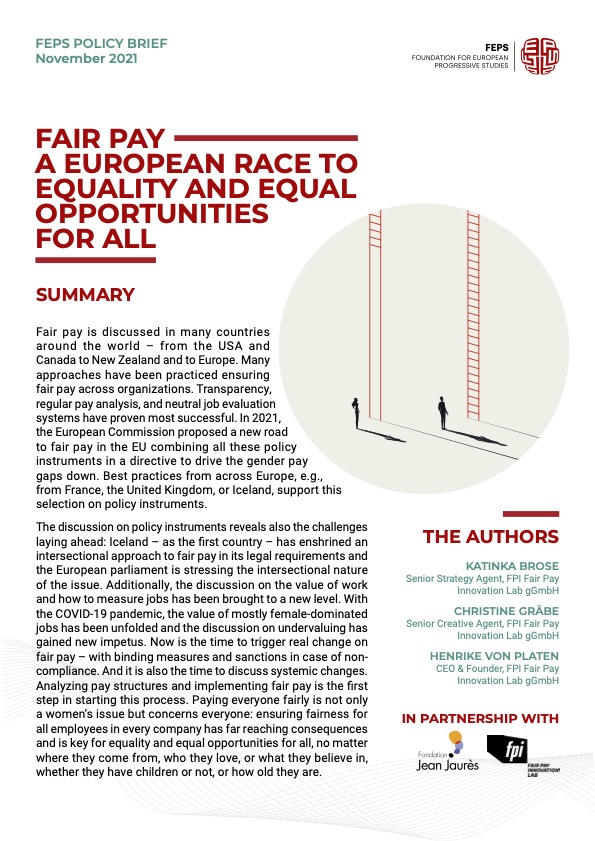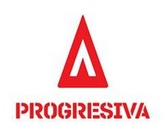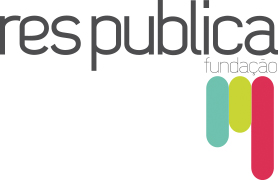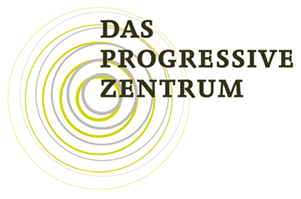
Publication
Fair Pay a European Race to Equality and Equal Opportunities for All
November 09, 2021Author: Christine Gräbe, Henrike Von Platen, Katinka Brose
Fair pay is discussed in many countries around the world – from the USA and Canada to New Zealand and to Europe. Many approaches have been practiced ensuring fair pay across organizations. Transparency, regular pay analysis, and neutral job evaluation systems have proven most successful.
In 2021, the European Commission proposed a new road to fair pay in the EU combining all these policy instruments in a directive to drive the gender pay gaps down.
The discussion on policy instruments reveals also the challenges laying ahead: Iceland – as the first country – has enshrined an intersectional approach to fair pay in its legal requirements and the European parliament is stressing the intersectional nature of the issue.
Read the Policy Brief | Version Française
Additionally, the discussion on the value of work and how to measure jobs has been brought to a new level. With the COVID-19 pandemic, the value of mostly female-dominated jobs has been unfolded and the discussion on undervaluing has gained new impetus.
Now is the time to trigger real change on fair pay – with binding measures and sanctions in case of non- compliance. And it is also the time to discuss systemic changes. Analyzing pay structures and implementing fair pay is the first step in starting this process. Paying everyone fairly is not only a women’s issue but concerns everyone: ensuring fairness for all employees in every company has far reaching consequences and is key for equality and equal opportunities for all, no matter where they come from, who they love, or what they believe in, whether they have children or not, or how old they are.
related publications
-
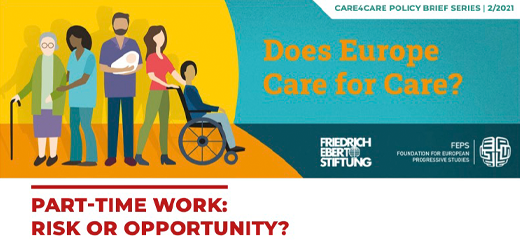
Part-time Work: Risk or Opportunity?
read more -

Gender-based violence against women and girls with disabilities
read more -

Violence against lesbians, bi women and trans people: adapting the public response to the diversity of LGBTI+ life experiences
read more -
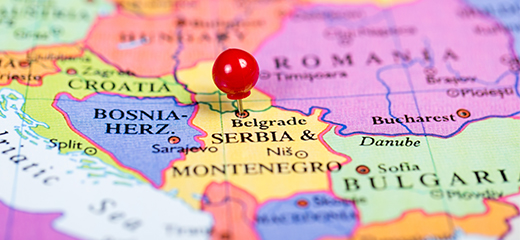
Preliminary Report: Violence against Women in Politics in Southeastern Europe
read more -

Towards a fairer, care-focused Europe
read more -

Naming it, fighting it: a multi-level analysis of digital gender-based violence
read more


